US elections
In early November, presidential elections were held in the US, in which Republican Donald Trump and Democrat Joe Biden faced off. The election results remain controversial – many people tend to question the fairness of the election given the opaque counting system and President Trump’s claims that the elections had serious irregularities.
Only some states have certified Biden’s victory. Because of the contested results, Trump’s team of lawyers and Republican lawmakers have filed lawsuits in a number of states, including Pennsylvania. According to Trump, 79% of Republicans believe that the election was a fraud, while 35-40% of Democrats hold the same opinion.
Trump told Fox News that his team could face serious difficulties in filing claims of irregularities in the presidential election with the Supreme Court (despite the fact that Trump has at least three appointees – Justices Amy Coney Barrett, Neil Gorsuch and Brett Kavanaugh).
“Well, the problem is it’s hard to get into the Supreme Court. I’ve got the best Supreme Court advocates, lawyers, that want to argue the case if it gets there. But they said, it’s very hard to get a case up there.”
“This is total fraud and how the FBI and Department of Justice I don’t know — maybe they’re involved,” the President said.
Meanwhile, Biden has already announced his victory and introduced his new team. The overwhelming majority are representatives of the administration of former President Barack Obama. It is important that several members of the team in key positions work for WestExec Advisors, which lobbies the interests of the American military-industrial complex, including drone manufacturers; some are even co-founders of the Washington consulting firm staffed by graduates of the Obama administration. Many critics of the new administration have already accumulated questions – first of all, about the irreplaceability of the democratic apparatus, and secondly, about the too close connection with the military lobby, which will directly affect the internal and foreign policy decisions in favor of WestExec Advisors participants.
Among the key figures in Biden’s team are:
– Kamala Harris (Vice-President), a well-known democratic “hawk”.
– Antony Blinken (Secretary of State) who is associated with WestExec Advisors. A longtime associate of Biden’s (since Biden was a senator), who served as Biden’s national security advisor when he was vice president, insisted on sending more US troops to Syria and opposed a hasty withdrawal from the Middle East.
– Avril Haines (nominee for Director of National Intelligence), who is linked to WestExec Advisors. Participated in the development of Obama’s policy in Syria and the creation of a ‘targeted killings’ programme using drones.
– Jake Sullivan (National Security Advisor to the President of the United States), is from Hillary Clinton’s team, and was largely responsible for the Iranian deal.
– Linda Thomas-Greenfield (future US representative to the UN), who is one of the most prominent black American diplomats and has worked for many years on African affairs at the US State Department.
– John Kerry is the Future Special Presidential envoy for climate change and former Secretary of State.
His communications team includes the following women:
– Kate Bedingfield (communications director), who previously worked in the same position for Biden during his time as Vice President and during his presidential campaign.
– Pili Tobar (deputy communications director), who worked on the Biden campaign and immigration issues.
– Karine Jean-Pierre (principal deputy press secretary), who ran Harris’ campaign office and worked for MoveOn.org.
– Symone Sanders (senior adviser and the chief spokesperson for Harris), who worked as a press secretary for Bernie Sanders, then moved to Team Biden.
– Ashley Etienne (Harris’ communications director), the former Assistant House Speaker Nancy Pelosi.
– Elizabeth Alexander (Jill Biden’s communications director), the former press secretary for Biden.
The fact that the whole team comes from Obama or Clinton’s associates says that if Biden is approved as President of the United States, the principles of interventionism under the guise of human rights will once again and foreign policy will again become a priority, including insistence on military interventions in the Middle East and more. But most importantly, the US itself will be guided in its actions by its orientation towards the unipolar world.
Victory in Nagorno-Karabakh
The new wave of escalation in Nagorno-Karabakh that began on 27 September ended with Azerbaijan’s convincing victory in the conflict.
On November 10, the leaders of Russia, Armenia and Azerbaijan adopted a joint ceasefire statement. The document states that the belligerents remain in their positions, and that three territories (previously occupied by Armenia) will return to Azerbaijan by 1 December: Agdam, Lachin and Kalbajar. According to the agreement, Russian peacekeepers will be deployed along the line of contact between Azerbaijani and Armenian forces in Nagorno-Karabakh and along the corridor connecting Nagorno-Karabakh with Armenia. Also, according to the Azerbaijani side, Turkey will play a special role in monitoring compliance with the ceasefire: although officially Ankara is not part of the trilateral negotiations, it is an active participant in developments and provides substantial support to Azerbaijan, including the military. The return of refugees to Nagorno-Karabakh is also a condition of the agreement.
On the eve of victory, Azerbaijani troops took the last of the districts left by the army of Nagorno-Karabakh.
This is a historically important event for Azerbaijan, and the agreement is in fact recognition of Baku’s victory. It is important not only to return the territories of Azerbaijan, but also to reconnect with the Nakhchivan Autonomous Republic of Azerbaijan.
The 30-year-old smouldering conflict in Nagorno-Karabakh always remains a potentially dangerous point. The signing of the agreement has sparked massive protests in Yerevan, and there will certainly remain discontent among Armenians. However, the Armenian side can benefit from the agreement – the bloodshed has stopped. Armenia had a chance to negotiate and make concessions earlier, in which case the losses would have been less.
In the resolution of the Nagorno-Karabakh conflict, an important role was played by Azerbaijan’s ally, Turkey, not only through diplomatic and economic cooperation, but also through military support. The return of part of the land to Azerbaijan as a result of this support would only strengthen relations between Ankara and Baku.
From a geopolitical point of view, it is also important to note that Western initiatives, including the clearly pro-Armenian position (in the case of the US and France) failed, but did add fuel to the fire of confrontation. The signing of the agreement, even if it is unpleasant for Armenia, shows that Turkey and Russia can be the main peacekeepers and mediators in this region.
Turkey’s conflict with the EU
In November, Turkey’s relations with several EU countries began to deteriorate. Against the backdrop of accumulated contradictions, EU leaders plan to put the issue of Turkey and possible sanctions against the country on the agenda of the summit scheduled for December 10-11.
German Chancellor Angela Merkel noted the lack of significant progress on issues affecting relations between the European Union and Turkey in connection with the December summit of EU leaders.
“We have not made as much progress on the EU-Turkey relationship as we wanted,” she told a virtual gathering of members of parliaments’ European affairs committees.
One of the conflicts was the provocation of German sailors from the ship Hamburg, who unilaterally, in violation of international law, began searching the Turkish fleet off Libyan shores.
It is hard to call Germany’s actions different from piracy: in fact, the reason for the invasion of Roseline-A was the Turkish flag itself.
Another line of confrontation has developed with France, specifically thanks to President Emmanuel Macron, who has been fomenting a tough anti-Turkish (and more broadly, anti-Islamic) agenda. This is linked to several factors: Macron, against the backdrop of the social crisis in France, is trying to divert attention to the Turkish factor, and it is also a direct conflict of interest in Libya, Africa and the Mediterranean Sea.
At the same time, tensions persist with Greece over mining in the Mediterranean and Cyprus. According to Merkel, Turkey is conducting “very aggressive,” “provocative” activities in the Mediterranean Sea.
Experts believe that the December summit could rather lead to some “symbolic” decisions against Ankara, adding that the European Pact is unlikely to adopt significant sanctions.
Some members of the organization, including France, Austria, Greece and the Greek Cypriot administration, want to corner Turkey and impose sanctions, but there are other countries that have bilateral ties and common interests with Ankara.
The pressure of the situation including threats of sanctions from EU countries is a tool for psychological pressure on Ankara, experts say. In terms of security (including the migrant issue), economy and geopolitics, it is not profitable for Europe to break relations with Turkey. Merkel, despite criticizing Turkey, noted Ankara’s contribution to the issue of Syrian refugees.
Official Ankara continues to insist on its potential EU membership, although there is no good reason to hope to join the EU in the face of such confrontation. Turkey expects the European Union to acknowledge its mistakes and understand the value that Turkish membership could bring to the bloc, Foreign Minister Mevlüt Çavuşoğlu said on Tuesday. He stressed that events in the Eastern Mediterranean and the Aegean Sea have a negative impact on Turkey’s relations with the EU. Some EU member states bring their bilateral problems with Turkey to the EU, he said, adding that these countries wear the “so-called mask of member solidarity” and use it against the country.
Çavuşoğlu also noted that in all its contacts with the EU Turkey emphasizes its desire to engage in a constructive dialogue. Europe itself, however, seems to be only exacerbating the situation for the time being.
The war in Ethiopia
In November, a war broke out in Tigray Province in Ethiopia. The military operation against the Tigray People’s Liberation Front (TPLF) reigning in northern Ethiopia began on November 4, after insurgents had taken over Northern Command facilities a day earlier, killing some of the military and capturing others. At the same time, they captured heavy weapons. The leaders of the People’s Liberation Front of Tigray organized all-round defense of the city, building various defense engineering structures.
On Saturday evening, November 28, the Ethiopian government army took full control of the city of Mekelle, the capital of the province of Tigray, Ethiopian Prime Minister Abiy Ahmed told Twitter. The city had been under intense aerial and artillery fire for hours on end.
The federal police are continuing arrests of TPLF activists. The government army has taken control of the airport, municipal buildings and other key public buildings and facilities.
Abiy Ahmed thanked the people of Tigray Province and stated that the next important task will be to restore what has been destroyed.
However, the leader of the forces in Tigray said that they are still fighting because of fears of a prolonged guerrilla conflict.
TPLF leader Debretsion Gebremichael denied reports that he had fled to South Sudan and said that his troops had captured several soldiers from neighbouring Eritrea.
“I’m close to Mekelle in Tigray fighting the invaders,” Debretsion Gebremichael told Reuters in a text message.
The war, which lasted almost a month, claimed the lives of hundreds and possibly thousands of people, sent refugees to Sudan, confused Eritrea, affected the peacekeeping mission in Somalia and reinforced the divisions among countless ethnic groups in Ethiopia.
With 110 million people, Ethiopia is the second largest country in Africa. Tigray is the northern province of Ethiopia, bordering Eritrea and Sudan. Of its six million inhabitants, 95% are Tigrayans, which represents 5% of Ethiopia’s total population.
Until recently, the province played a special role in Ethiopia, and the Tigray People’s Liberation Front, which ruled the province from 1991 to 2018, was Ethiopia’s de facto ruling party in the political alliance of the Ethiopian People’s Revolutionary Democratic Front. If the party preferred the principles of “ethnic federalism”, then Abiy is a neoliberal, with strong Western support.
Abiy has taken a number of political and economic initiatives, including the privatisation of a number of important companies, which drastically reduces the Front’s influence. Some of these companies may be sold abroad.
As we wrote before, the liberal Prime Minister of Ethiopia, hailed by the West for his market reforms (large scale privatization, liberalization of key economic sectors, inviting foreign investors, attracted by cheap labor force), used his power also to promote the nationalistic agenda instead of “ethnic federalist” one.
Elections in Peru
The unstable situation in Peru continues – in one month, the country has already had its third president.
On November 9, the Congress of Peru impeached President Martin Viscarra on charges of corruption. On November 10, the Speaker of Congress, Manuel Merino, was sworn in as Acting President until the next elections, scheduled for April 2021.
Thousands of demonstrations began in Peru following the ouster of former President Martin Viscarra. By November 15, there were at least three dead demonstrators and over a hundred injured in clashes with the police in Lima, the Peruvian capital.
On November 10, when Merino was sworn in, individual groups of protesters attempted to force their way into the Congress building. To stop them, the police used water cannons, tear gas and rubber bullets. On November 13, protesters threw stones and fireworks at the police, who responded with tear gas. On November 14, the police also reportedly used live ammunition against demonstrators in Lima.
Peru’s interim president, Manuel Merino, announced his resignation on Sunday November 15, just five days after taking the oath.
Peru has been an economic success story for almost three decades, but the Coronavirus Pandemic has dealt a heavy blow to the country’s mineral-based economy, pushing up the poverty rate and leading to the largest annual decline in a century. This has worsened the situation of Peruvians, which has caused major discontent.
Francisco Sagasti is likely to be the new President of Peru. He secured the support of a majority of the deputies and was elected Speaker of Congress.
Peru’s interim president, Francisco Sagasti, said he would not insist on holding a referendum on changing the country’s constitution in order to resolve a protracted political crisis, during which there have been strong calls for major reforms in recent weeks.
He has succeeded in calming the crowds of protesters in the short term, but the country remains unstable with calls on the streets for constitutional change and a major overhaul of Congress, especially among the country’s youth.
More than three million Peruvians have taken to the streets in recent days, according to an Ipsos survey. Around 90% disapprove of Congress and most do not identify with any political party.
Sagasti, whose term of office will run until July and include leadership in the new elections scheduled for April, said his government is primarily focused on “calming” the current situation.
Much of the momentum for constitutional change will depend on whether Peruvians continue to protest and whether political tensions between Congress and the executive remain. Some experts fear that the removal of the first president will become a constant threat in a split legislature.




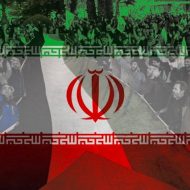
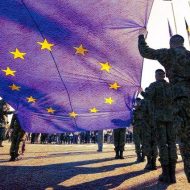
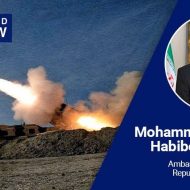
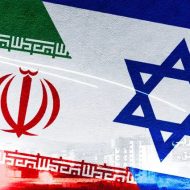
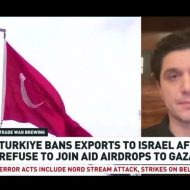
Leave a Reply